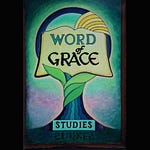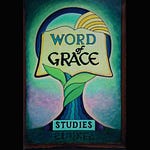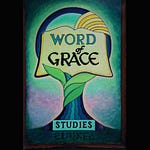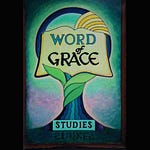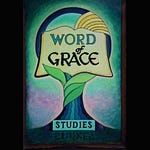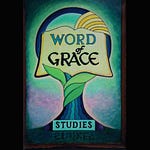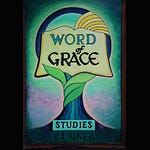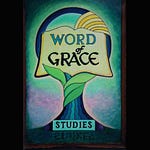The Gospel is Brought to Iconium (Acts 14:1–7)
When Paul and Barnabas arrived in Iconium, a great many Jews and Greeks believed the gospel (Acts 14:1). However, the unpersuaded Jews stirred up and mistreated the souls (emotions) of the Gentiles against the brethren (Acts 14:2). Despite this opposition, Paul and Barnabas stayed in Iconium for a long time, boldly witnessing to the truth (Acts 14:3).
As a result, the people of the city became divided, some siding with the Jews and others with the apostles (Acts 14:4). Eventually, the Jews, along with some Gentiles and the rulers of the city, attempted to spitefully treat and stone Paul and Barnabas (Acts 14:5). Learning of this plot, the apostles fled to the cities of Lystra and Derbe (Acts 14:6), and the gospel continued to spread throughout the region (Acts 14:7).
The Negative Impact of a Sign on the Gentiles (Acts 14:8–18)
While in Lystra, Paul healed a man who had been crippled from his mother’s womb (Acts 14:8). This man listened intently to Paul, and seeing his faith, Paul told him to stand upright on his feet, and he was healed (Acts 14:9–10).
Upon witnessing this miracle, the people of Lystra exclaimed that Paul and Barnabas were gods, calling Barnabas "Zeus" and Paul "Hermes" because he was the chief speaker (Acts 14:11–12). The priest of Zeus even brought oxen and garlands to offer a sacrifice with the crowds (Acts 14:13).
Barnabas and Paul, in great distress, tore their clothing—a Jewish expression used to draw attention to a grievous matter (Acts 14:14). They urged the people not to offer sacrifices to them, explaining that they were mere men with the same nature, preaching that the people should turn from these useless things to the living God (Acts 14:15). Paul and Barnabas testified that although God had previously allowed the nations to walk in their own ways (Acts 14:16), He had not left Himself without witness. God had given rain from heaven, fruitful seasons, and filled hearts with food and gladness (Acts 14:17). Even with these words, they scarcely restrained the multitudes from sacrificing to them (Acts 14:18).
The Jews from Antioch and Iconium Stone Paul (Acts 14:19–20)
Soon after, Jews from Antioch and Iconium arrived in Lystra and persuaded the crowds against Paul (Acts 14:19). They stoned him and dragged him out of the city, supposing him to be dead. However, when the disciples gathered around him, Paul rose up.
Paul later recounts this experience in 2 Corinthians 12:1–4. He records the event fourteen years later, describing how he was caught up to Paradise at the edge of the third heaven (2 Corinthians 12:2–4). Prior to Christ’s resurrection, Paradise was located within Hades (Psalm 16:10), where three chambers existed: the lowest Sheol, where unsaved humans resided (Deuteronomy 32:22); the abyss, where fallen angels were bound (Luke 8:31); and Paradise, where the Old Testament saints were kept (Luke 16:22; 23:43). After Christ’s resurrection, believers who die now enter directly into the presence of the Lord in the third heaven (2 Corinthians 5:8).
At that time, Paul was not permitted to enter fully into the third heaven, and God resuscitated him. He heard words that were inexpressible and not permissible to utter in this life (2 Corinthians 12:4). The next day, Paul and Barnabas departed for Derbe (Acts 14:20).
Paul and Barnabas Return to Antioch (Acts 14:21–28)
In Derbe, Paul and Barnabas preached the gospel and made many disciples (Acts 14:21). They then returned to Lystra, Iconium, and Antioch, strengthening the souls of the disciples and encouraging them to continue in the faith, warning that through many tribulations we must enter the kingdom of God (Acts 14:21–22).
In each city, they appointed elders (pastors) for the assemblies, commending them to the Lord with prayer and fasting (Acts 14:23). They passed through Pisidia and came to Pamphylia (Acts 14:24), where they preached the word of God in Perga and went down to Attalia (Acts 14:25).
Finally, they returned to Antioch, from where they had been commended to the grace of God for the work they had now completed (Acts 14:26). Upon arrival, they gathered the church together and reported all that God had done with them, including how He had opened the door of faith to the Gentiles (Acts 14:27). They remained in Antioch for a long time, staying with the disciples (Acts 14:28).
The First Jerusalem Council (Acts 15)
Following their return, certain men from Jerusalem came and began teaching the Gentile believers that circumcision was necessary for salvation (Acts 15:1). The book of Galatians was later written in response to this issue, addressing how some sought to turn the saints away from the grace of Christ to a different gospel (Galatians 1:6–7).
The term "Galatianism" describes this error—depicting a person who seeks to appear righteous before others through their works (Galatians 6:12). Paul and Barnabas strongly opposed and disputed with those teaching circumcision (Acts 15:2), and the church at Antioch determined that they should go to Jerusalem to discuss the matter with the apostles and elders (Acts 15:3).
As they traveled through Phoenicia and Samaria, Paul and Barnabas described the conversion of the Gentiles, bringing great joy to all the brethren (Acts 15:4). Upon arriving in Jerusalem, they were welcomed by the church, but some believers from the sect of the Pharisees rose up, insisting that circumcision and obedience to the Mosaic Law were necessary (Acts 15:5–6).
This sect, though believing in the resurrection of Christ, had infiltrated the church, and later in Acts, their influence is evident when James boasts to Paul about their zeal for the law. Circumcision inherently required complete obedience to the Mosaic Law.
At the Jerusalem Council (Acts 15:6–22), the apostles and elders came together to consider the matter carefully. Peter recounted how the Gentiles had heard the gospel through him and believed (Acts 15:7). God, knowing the heart, bore witness by giving them the Holy Spirit, making no distinction between Jews and Gentiles and purifying their hearts by faith (Acts 15:8–9).
Peter questioned why they would test God by placing a yoke upon the Gentile believers that neither their ancestors nor they themselves could bear (Acts 15:10), affirming that salvation comes through the grace of the Lord Jesus Christ, the same for all (Acts 15:11).
Barnabas and Paul then shared the miracles and wonders God had performed among the Gentiles (Acts 15:12). Afterward, James stood and delivered his judgment, agreeing that they should not trouble the Gentiles by demanding circumcision and obedience to the law (Acts 15:13–21). He cited the words of the prophets that foretold the Gentiles would seek the Lord (Acts 15:15–18) and outlined simple instructions for them to follow (Acts 15:19–21).
The council agreed with James' judgment, and a letter was drafted to communicate their decision (Acts 15:22).



